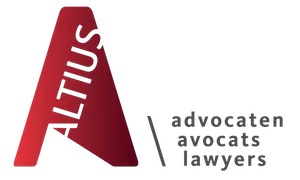Legal regulations. From sales and liquidation sales to special offers, coupons, contests and price comparisons, retailers must strike a balance between effective marketing and legal compliance. In this blog series, we explore key legal principles to help navigate promotional strategies as well as the main pitfalls. It is not an exhaustive overview of the rules but rather a guide to the main points to keep in mind.
This series will cover:
- Price reduction announcements: the legal framework and best practices
- Sales periods: rules, restrictions, and compliance
- Liquidation sales: when and how to legally conduct them
- "Buy One, Get One Free? " The legal do's and don'ts of joint offers
- Promotional contests: how to organise them without legal risks
- Coupons and vouchers: don't forget the required information
- Gift cards: legal considerations and recommendations
Professional legal support is highly recommended when running promotional actions, whether for examining envisaged promotional actions, validating advertising material or drafting the applicable general terms and conditions. Indeed the Economic Inspection keeps a close watch and can impose heavy penalties on retailers failing to comply with the rules.
Part 4 – "Buy One, Get One Free?" Legal do's and don'ts of joint offers
This fourth part of our "Retail promotions & pricing: legal essentials for businesses" series presents best practice in joint offers.
What are joint offers?
Belgian law defines a joint offer as an offer linking the acquisition of goods or services to the acquisition of other goods or services, whether or not free of charge.
Retailers have a lot of freedom to organise and advertise such promotional offers. Classic examples of joint offers are:
- "Buy one, get one free"
- "3 for the price of 2"
- "2nd at half price"
- "10% discount on Product A when you buy Product B"
- "30% discount on the purchase of 2 items marked with a sticker"
Are joint offers allowed?
Joint offers are allowed under Belgian law, even during the waiting period before the sales period, which makes it a very popular promotional action during the waiting periods in June and December.
As with any commercial practice, the prohibition of unfair commercial practices – particularly regarding price advantages – must be considered when implementing and advertising joint offers. In this regard, even though reference price rules do not apply to joint offers, not everything is allowed. Stating a price for a joint offer that is no better than purchasing the two products separately or artificially inflating prices just before the joint offer could constitute a type of misleading commercial practice.
Also, the prohibition on selling at a loss applies. In the case of a joint offer of several goods, whether identical or not, the prohibition on sales at a loss only applies when the offer as a whole constitutes a sale at a loss.
Can services be included in the joint offer?
Joint offers involving services in combination (or not) with goods are authorised. For example, "Sign up for a gym membership and receive a free sports bag" or "Book three nights, receive a spa treatment".
However, there is an exception for financial services. Any joint offer to the consumer, at least one element of which constitutes a financial service, and which is made by one company or by different companies acting with a common purpose, is prohibited.
Belgian law lists exceptions in which it is authorised to include a financial service in the joint offer:
- Financial services that form a whole;
- Financial services and small goods and services accepted by commercial use;
- Financial services and titles to participate in legally-authorised lotteries;
- Financial services and objects bearing clearly marked and indelible advertising descriptions that are not found as such in business, on the condition that the price at which the undertaking has bought them, does not exceed EUR 10 excluding VAT, or 5% of the price excluding VAT, of the financial service with which they are allocated. The 5% percentage applies if the corresponding price is greater than 10 EUR;
- Financial services and stickers, vignettes and other images of minimal commercial value;
- Financial services and titles consisting of documents giving entitlement, after the acquisition of a number of services, to a free offer or a price reduction upon the acquisition of a similar service, provided by the same undertaking and that do not exceed one-third of the price of the services previously acquired.
Conclusion
The joint offer is a tool that can be used for promotions all year round and is particularly efficient for avoiding the prohibition on announcing price reductions during the pre-sales period (see part two). Retailers must be careful to apply joint offers in a way that is not misleading concerning the price advantage for the consumer and does not result in selling at a loss. The inclusion of financial services in such offers must be strictly limited to the exceptions provided for by law.
The content of this article is intended to provide a general guide to the subject matter. Specialist advice should be sought about your specific circumstances.


